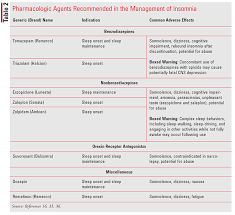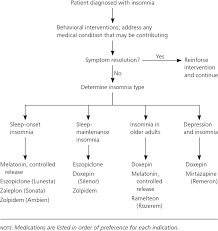Understanding Period Insomnia: Causes and Solutions
Period insomnia, also known as menstrual insomnia, is a common sleep disorder that affects many women during their menstrual cycle. It refers to difficulty falling asleep or staying asleep during the period or just before it starts. This can lead to fatigue, irritability, and difficulty concentrating during the day.
Causes of Period Insomnia:
Several factors contribute to period insomnia:
- Hormonal Changes: Fluctuations in estrogen and progesterone levels during the menstrual cycle can disrupt the sleep-wake cycle.
- Pain and Discomfort: Menstrual cramps, bloating, and other physical symptoms can make it hard to get comfortable and fall asleep.
- Anxiety and Mood Swings: Hormonal changes can also affect mood, leading to anxiety or depression that interferes with sleep.
- Caffeine and Sugar Intake: Consuming caffeine and sugary foods/drinks can worsen insomnia symptoms.
Solutions for Period Insomnia:
There are several strategies to help manage period insomnia:
- Sleep Hygiene: Maintain a consistent sleep schedule, create a relaxing bedtime routine, and ensure your sleep environment is conducive to rest.
- Dietary Changes: Limit caffeine and sugar intake, especially close to bedtime. Focus on a balanced diet rich in fruits, vegetables, whole grains, and lean proteins.
- Exercise Regularly: Engaging in physical activity can help regulate hormones and improve overall sleep quality.
- Stress Management Techniques: Practice relaxation techniques such as deep breathing, meditation, or yoga to reduce anxiety and promote better sleep.
If period insomnia persists or significantly impacts your daily life, consider consulting a healthcare provider. They can offer further guidance on managing your symptoms and may recommend treatments such as medication or cognitive-behavioral therapy for insomnia (CBT-I).
By understanding the causes of period insomnia and implementing effective solutions, women can improve their sleep quality during menstruation and enhance their overall well-being.
Turning Period Insomnia into Positive Change: 5 Benefits to Embrace
- Increased awareness of hormonal fluctuations during the menstrual cycle.
- Opportunity to focus on improving sleep hygiene and bedtime routines.
- Recognition of the importance of managing stress and anxiety for better sleep.
- Motivation to make dietary changes that can positively impact overall health.
- Encouragement to seek professional guidance for long-term solutions and support.
Understanding the Impact of Period Insomnia: Fatigue, Mood Swings, and Health Concerns
- Period insomnia can lead to daytime fatigue and decreased productivity due to lack of quality sleep.
- Persistent period insomnia may exacerbate mood swings and anxiety during the menstrual cycle.
- Long-term untreated period insomnia can impact overall health, including hormone regulation and immune function.
Increased awareness of hormonal fluctuations during the menstrual cycle.
Period insomnia can actually lead to an unexpected benefit: increased awareness of hormonal fluctuations during the menstrual cycle. When experiencing difficulty falling asleep or staying asleep during menstruation, individuals may become more attuned to the changes in their hormones, such as fluctuations in estrogen and progesterone levels. This heightened awareness can empower individuals to better understand their bodies and recognize how hormonal shifts impact various aspects of their health and well-being throughout the month.
Opportunity to focus on improving sleep hygiene and bedtime routines.
Period insomnia presents an opportunity for individuals to prioritize and enhance their sleep hygiene and bedtime routines. By experiencing challenges with falling asleep or staying asleep during their menstrual cycle, individuals can delve into establishing consistent sleep schedules, creating calming bedtime rituals, and optimizing their sleep environment. This pro of period insomnia allows individuals to pay closer attention to their sleep habits, making necessary adjustments that can benefit not only their quality of sleep during menstruation but also their overall well-being in the long run.
Recognition of the importance of managing stress and anxiety for better sleep.
An important pro of period insomnia is the recognition of the significance of managing stress and anxiety for better sleep. Period insomnia highlights the interconnectedness between mental well-being and sleep quality, emphasizing the need to address underlying stressors and anxieties to improve overall restorative sleep during menstruation. By acknowledging the impact of stress on sleep patterns, individuals are encouraged to prioritize self-care practices that promote relaxation, such as mindfulness techniques, deep breathing exercises, and other stress management strategies, ultimately leading to improved sleep outcomes and enhanced overall health.
Motivation to make dietary changes that can positively impact overall health.
Period insomnia can serve as a motivating factor for individuals to make dietary changes that can have a positive impact on their overall health. When experiencing sleep disturbances during menstruation, individuals may become more conscious of the connection between their diet and sleep quality. This awareness can inspire them to reduce caffeine and sugar intake, focus on a balanced diet rich in nutrients, and prioritize foods that support better sleep. By making these dietary changes, individuals not only address period insomnia but also promote better overall health and well-being.
Encouragement to seek professional guidance for long-term solutions and support.
Encouragement to seek professional guidance for long-term solutions and support is a significant advantage of period insomnia. Consulting with a healthcare provider or sleep specialist can help individuals identify underlying causes of their sleep disturbances during menstruation and develop personalized treatment plans. Professional guidance may involve exploring therapeutic interventions, such as cognitive-behavioral therapy for insomnia (CBT-I), hormone regulation strategies, or medication options to address persistent symptoms. By seeking expert advice, individuals with period insomnia can access comprehensive care that promotes long-term improvements in sleep quality and overall well-being.
Period insomnia can lead to daytime fatigue and decreased productivity due to lack of quality sleep.
Period insomnia can have a significant impact on daily functioning, as it often results in daytime fatigue and decreased productivity. The lack of quality sleep caused by period insomnia can leave individuals feeling lethargic, irritable, and unable to concentrate effectively on tasks. This can not only affect personal well-being but also hinder professional performance and overall quality of life. Addressing period insomnia is crucial in order to improve energy levels, cognitive function, and overall productivity during the day.
Persistent period insomnia may exacerbate mood swings and anxiety during the menstrual cycle.
Persistent period insomnia can exacerbate mood swings and anxiety during the menstrual cycle. The lack of quality sleep can disrupt hormonal balance and emotional regulation, leading to heightened feelings of irritability, stress, and unease. When already dealing with the physical discomforts of menstruation, the added burden of sleep deprivation can intensify emotional responses and make it more challenging to cope with daily stressors. Addressing period insomnia is crucial not only for improving sleep quality but also for managing mood fluctuations and anxiety levels effectively during this sensitive time of the month.
Long-term untreated period insomnia can impact overall health, including hormone regulation and immune function.
Long-term untreated period insomnia can have detrimental effects on overall health, particularly in hormone regulation and immune function. Prolonged disruptions in sleep patterns due to period insomnia can lead to imbalances in estrogen and progesterone levels, affecting the body’s ability to regulate these crucial hormones. Additionally, inadequate sleep can weaken the immune system, making individuals more susceptible to illnesses and infections. Addressing period insomnia promptly is essential not only for improving sleep quality but also for safeguarding hormonal balance and immune resilience in the long run.



